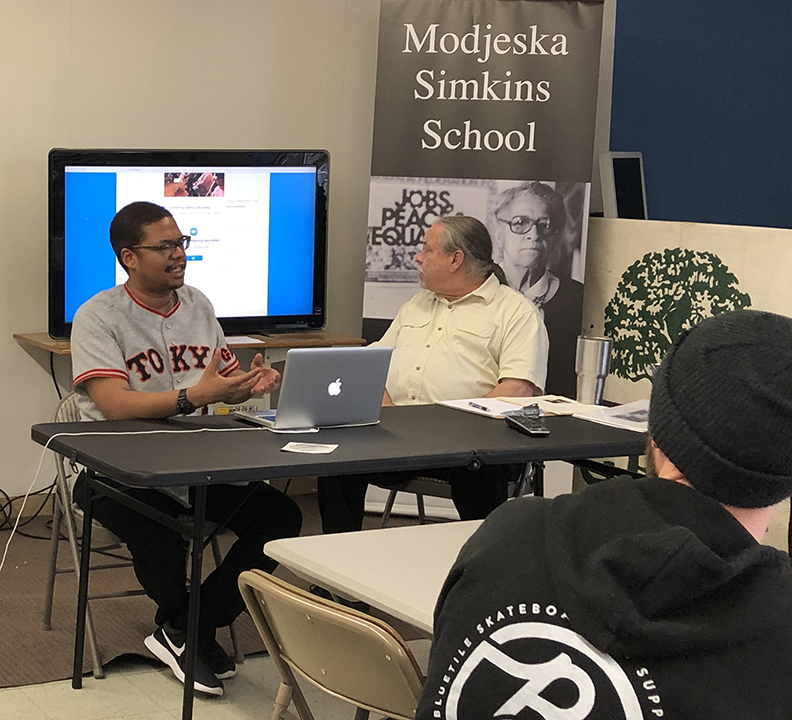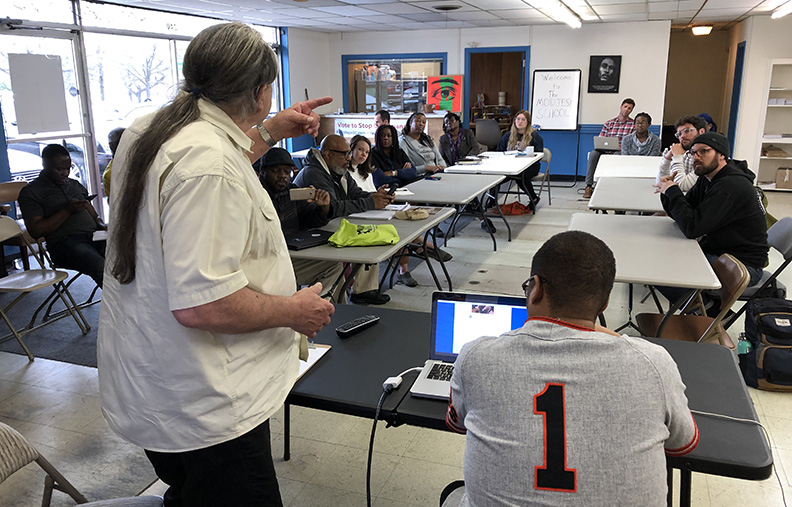Perhaps not since the Civil War has the country faced such a perilous future. To survive, we must cultivate a more informed and engaged citizenry. It is that very mission at the heart of the Modjeska Simkins School for Human Rights, launched in 2015 to teach a people’s history of South Carolina and skills to be an effective citizen or grassroots organizer in the Palmetto State.
The school is now accepting applications for the spring session, which begins with orientation on March 7 and ends with graduation on July 3. Classes will meet on alternate Mondays 6:30pm-8:30pm on Zoom.
“What makes the Modjeska Simkins School unique is that it reminds us that history is not something simply found in books, but is part of our everyday existence,” said the school’s faculty coordinator, Dr. Robert Greene II. “Knowing that history helps us to make informed choices about how to change the world around us — for the better.”
Greene, who teaches history at Claflin University in Orangeburg, said understanding our history and basic civics “is the best defense against all the terrible and hurtful ideologies of modern society — whether racism, sexism, nationalism, or homophobia. The Modjeska Simkins School continues the longer tradition from freedom movements around the world of building up citizens who then, in turn, build up their societies for all.”
The school, named for human rights activist Modjeska Monteith Simkins, is a project of the SC Progressive Network, which for a decade had offices in her home until it was turned into an historic site a few years ago. The Network is now housed next door, where the school will meet once the pandemic is over.
Orientation session, March 2020
Network Director Brett Bursey, who was mentored by Simkins for nearly two decades, said the school is the most rewarding project in the Network’s 25 years of grassroots organizing. “It has far exceeded our expectations. We have the input and involvement of extremely gifted teachers and activists. The students have taken it seriously, and have gone on to do important work on boards, commissions, in classrooms, and in community organizations across the state.”
Greene is a blogger and Book Review Editor with Society of U.S. Intellectual Historians and Lead Associate Editor, Black Perspectives, African American Intellectual History Society. He will be joined by an impressive line-up of guest speakers that include writers, historians, and seasoned political activists.
South Carolina has long had an over-sized influence on the national stage, in terms of individual players as well as historical significance. The reasons can be traced back to the state’s beginning, the only state built on a slave economy and maintained through the centuries by its exploitation of the working class, and its unrelenting resistance to progressive change. Connecting those dots — and understanding what they mean — forms the core of the school’s curriculum.
Classes cover political and social theory, as well as strategies, tactics, and practical tools for making progressive change. Upon graduation, students are asked to put what they’ve learned to work by getting involved in one of the Network’s ongoing projects or create one of their own.
Enrollment is open for this year’s spring session, which runs March 7 – July 3. Classes will be held on alternate Monday evenings 6:30-8:30 on Zoom. Visit the web site for more about the school, class schedule, or to apply. Some scholarships are available.
The school gratefully accepts donations for scholarships and stipends for our guest speakers. You may donate securely online, by calling 803-808-3384, or by sending a check to POB 8325, Columbia SC 29202.

Robert Greene (left) and Brett Bursey lead last year’s class orientation. Half the students came in person that day in March, just as the pandemic was hitting South Carolina. The rest joined online. It was the only time the class met face-to-face. We are better prepared for distance learning this session, and know the format even has its advantages.

